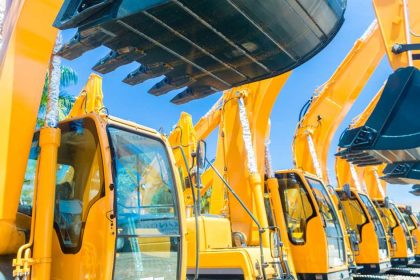Experts have warned yesterday’s Optus outage has highlighted the critical risks associated with Australia’s growing dependence on certain communication technology infrastructures.
The national outage from 4 a.m. Wednesday affected more than 10 million people across the country, leaving them unable to access the connectivity channels the world has become accustomed to.
The service failure was one of the most extensive in Australian history, leaving hospitals, transport networks, government services and more than 400,000 businesses in a storm of frustration and chaos as they were unable to access mobile networks, internet or manage EFTPOS payments.
The construction industry was no stranger to these knock-on effects, with workers around the country left unable to communicate with their colleagues or clients.
Tradies operating their own businesses were some of the hardest hit by the outage, with many losing out on hours of paid work.
“We’ve not received a single call or text all day,” Lee, a Gold Coast-based plumber, told Build-it.
“We were pretty much in the dark, unable to reach each other or organise jobs properly among staff or get back to customers.”
Fragility of essential infrastructure
With the world continuously undergoing rapid technological advances, the tech failure has left experts questioning the fragility of Australia’s communication network infrastructure and essential technology systems.
Engineers Australia Chief Engineer Jane MacMaster warned total dependence on such technology systems can often lead to a cascade of negative impacts should they fail.
“When one system fails, it can trigger a domino effect across multiple systems, amplifying negative impacts.”
Ms MacMaster said increased interconnectivity meant Aussies would become increasingly susceptible to the impact of technology system outages, with Australian businesses needing to adapt to reduce the effects of “cascading risk”.
“Cascading risk can result from various factors, such as extreme weather events, cyberattacks, or geopolitical events,” she said.
“Australia has witnessed several instances of cascading risk in the past, including the 2016 electricity system blackout in South Australia and the recent impact on transport networks and vital services during bushfires.”
Network reliance risks highlighted
University of Queensland digital technology expert Associate Professor Stan Karanasios told Build-it the outage was an eye-opener for the downsides of wireless network infrastructure dependence.
“Most systems operate on a 99.9 per cent uptime, and in Australia, we’ve become quite used to – and complacent to – having constant access anywhere,” he said.
“It shows how much we already rely on this type of connectivity and what happens when it is no longer available,” he said.
Professor Karanasios says workplace changes post-COVID have left more businesses exposed to the possible impacts of network connectivity issues.
“Pre covid, with 90 per cent of the workforce being office-based, you could make do for a day or two without these as you had your computers, your files could be stored on a hard drive, and you still had the opportunity for face-to-face conversations with colleagues,” he explained.
“Now, with so many working from home, the impacts are more immediate.”
Ms MacMaster recommended those in the building and construction sector to conduct risk assessments regarding their technology systems to identify possible weaknesses and implement management plans to increase their reliance on such scenarios.
“This could include having a risk or crisis management plan or building redundancies for critical systems. But the first step is understanding what systems they rely on and what would happen if these systems fail,” she said.
“In an increasingly interconnected world, we must adapt to manage complex systems effectively.”








